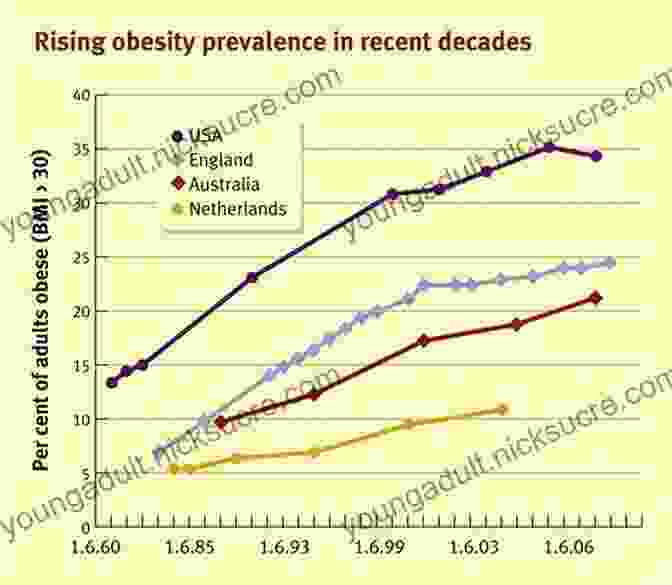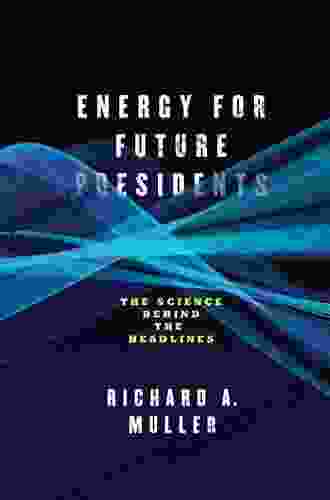The Science Behind The Headlines: Understanding How Media Shapes Our Perception of Health

4.3 out of 5
| Language | : | English |
| File size | : | 5718 KB |
| Text-to-Speech | : | Enabled |
| Enhanced typesetting | : | Enabled |
| Word Wise | : | Enabled |
| Screen Reader | : | Supported |
| Print length | : | 343 pages |



The media plays a powerful role in shaping our perception of health. The headlines we read, the stories we watch on TV, and the articles we share on social media all contribute to our understanding of what is healthy and what is not.
But how much of what we see in the media is actually accurate? And how does it influence our behavior?
In this article, we will explore the science behind the headlines, examining how media coverage of health-related issues shapes our perception of health and influences our behavior. By understanding the factors that influence media reporting, we can become more critical consumers of health information and make more informed decisions about our own health.
How the Media Shapes Our Perception of Health
The media can shape our perception of health in a number of ways. First, the media can influence what we think about health by determining which stories are covered and how they are presented.
For example, a study by the Harvard School of Public Health found that news coverage of obesity tended to focus on the negative consequences of obesity, such as the increased risk of heart disease and diabetes. This coverage may have contributed to the public's perception of obesity as a major health problem, even though obesity rates have remained relatively stable for the past few decades.
Second, the media can influence how we feel about health by using emotional language and imagery. For example, a study by the University of Pennsylvania found that news coverage of cancer tended to use more negative language than positive language. This coverage may have contributed to the public's perception of cancer as a deadly disease, even though cancer survival rates have been increasing for decades.
Third, the media can influence what we do about health by providing information about health risks and benefits. For example, a study by the Centers for Disease Control and Prevention found that media campaigns promoting the flu vaccine were effective in increasing vaccination rates. This coverage may have contributed to the public's perception of the flu vaccine as an effective way to prevent the flu, even though the vaccine is not always 100% effective.
How the Media Influences Our Behavior
The media can influence our behavior in a number of ways. First, the media can influence our behavior by providing information about health risks and benefits. For example, a study by the National Cancer Institute found that media campaigns promoting the dangers of smoking were effective in reducing smoking rates. This coverage may have contributed to the public's perception of smoking as a dangerous activity, even though smoking is still the leading cause of preventable death in the United States.
Second, the media can influence our behavior by providing role models and examples. For example, a study by the University of Michigan found that media coverage of celebrities who exercise regularly was associated with increased physical activity among viewers. This coverage may have contributed to the public's perception of exercise as a desirable activity, even though exercise is not always easy or enjoyable.
Third, the media can influence our behavior by creating a sense of urgency. For example, a study by the University of California, Berkeley found that media coverage of the Ebola virus outbreak was associated with increased anxiety and fear among viewers. This coverage may have contributed to the public's perception of Ebola as a major threat, even though the risk of contracting Ebola in the United States was very low.
Factors That Influence Media Reporting
A number of factors influence how the media reports on health-related issues, including:
- News values: News organizations are more likely to cover stories that are timely, relevant, and interesting to their audience. This means that stories about new and emerging health threats are more likely to get coverage than stories about long-standing health problems.
- Sources: The media relies on experts to provide information about health-related issues. These experts may include doctors, scientists, and public health officials. The media's choice of sources can influence how a story is framed and what information is included.
- Audience: The media's audience also plays a role in shaping how health-related issues are covered. For example, a story about a new cancer treatment may be covered differently by a magazine that targets cancer patients than by a magazine that targets the general public.
- Sensationalism: The media sometimes sensationalizes health-related stories in order to attract attention. This can involve using exaggerated language, highlighting the most extreme cases, or focusing on the negative aspects of a story.
How to Be a Critical Consumer of Health Information
It is important to be a critical consumer of health information, especially when it comes from the media. Here are a few tips:
- Be aware of news values. Remember that news organizations are more likely to cover stories that are timely, relevant, and interesting to their audience. This means that you should be skeptical of stories that seem too good to be true or that are based on a single study.
- Consider the source. Who is providing the information? Are they an expert in the field? Do they have any conflicts of interest? You should be more skeptical of information that comes from a biased source.
- Look for balance. Does the story present both sides of the issue? Does it include information from multiple experts? You should be skeptical of stories that only present one side of the issue or that rely on a single expert.
- Be aware of sensationalism. The media sometimes sensationalizes health-related stories in order to attract attention. This can involve using exaggerated language, highlighting the most extreme cases, or focusing on the negative aspects of a story. You should be skeptical of stories that seem overly sensationalistic.
The media plays a powerful role in shaping our perception of health. By understanding how the media reports on health-related issues, we can become more critical consumers of health information and make more informed decisions about our own health.
4.3 out of 5
| Language | : | English |
| File size | : | 5718 KB |
| Text-to-Speech | : | Enabled |
| Enhanced typesetting | : | Enabled |
| Word Wise | : | Enabled |
| Screen Reader | : | Supported |
| Print length | : | 343 pages |
Do you want to contribute by writing guest posts on this blog?
Please contact us and send us a resume of previous articles that you have written.
 Fiction
Fiction Non Fiction
Non Fiction Romance
Romance Mystery
Mystery Thriller
Thriller SciFi
SciFi Fantasy
Fantasy Horror
Horror Biography
Biography Selfhelp
Selfhelp Business
Business History
History Classics
Classics Poetry
Poetry Childrens
Childrens Young Adult
Young Adult Educational
Educational Cooking
Cooking Travel
Travel Lifestyle
Lifestyle Spirituality
Spirituality Health
Health Fitness
Fitness Technology
Technology Science
Science Arts
Arts Crafts
Crafts DIY
DIY Gardening
Gardening Petcare
Petcare Christian Wiggins
Christian Wiggins United States Government Us Army
United States Government Us Army Robyn Harding
Robyn Harding Andy Mitchell
Andy Mitchell Margaret M Quinlan
Margaret M Quinlan Irene Gut Opdyke
Irene Gut Opdyke Karen Elliott House
Karen Elliott House Andy Tyson
Andy Tyson Bob Gordon
Bob Gordon Miles Olson
Miles Olson Alessio Mangoni
Alessio Mangoni Roland A Boucher
Roland A Boucher Kim West
Kim West Jonathan Gottschall
Jonathan Gottschall Adam Skolnick
Adam Skolnick Kim Foley Mackinnon
Kim Foley Mackinnon Tim Larkin
Tim Larkin Thais Nye Derich
Thais Nye Derich Nicole Smith
Nicole Smith Leonard Lueras
Leonard Lueras Tara Sim
Tara Sim Angel Millar
Angel Millar Stephen Grossberg
Stephen Grossberg Kathy Freston
Kathy Freston Erich Fromm
Erich Fromm Shane O Mara
Shane O Mara Matthew D Dewar
Matthew D Dewar Ashley P Martin
Ashley P Martin David E Jones
David E Jones Sabbithry Persad Mba
Sabbithry Persad Mba Rick Vaive
Rick Vaive Angela Stancar Johnson
Angela Stancar Johnson Danil Zburivsky
Danil Zburivsky Lee Cronk
Lee Cronk Mark Remy
Mark Remy Rachel Hutt Phd
Rachel Hutt Phd Marilyn Burgos
Marilyn Burgos Rodney Castleden
Rodney Castleden Ron Douglas
Ron Douglas Margaret Visser
Margaret Visser Lawrence Goldstone
Lawrence Goldstone Ryan Bow
Ryan Bow Mark Lester
Mark Lester Gary B Meisner
Gary B Meisner Dr Eva Beaulieu
Dr Eva Beaulieu Lin Wellford
Lin Wellford David C Keehn
David C Keehn Petros Efthymiou
Petros Efthymiou Ed Stafford
Ed Stafford Rebecca Boggs Roberts
Rebecca Boggs Roberts Scott Meyer
Scott Meyer Stacy Mccullough
Stacy Mccullough Dwight E Neuenschwander
Dwight E Neuenschwander Chris Chelios
Chris Chelios Robert Dudley
Robert Dudley Mark Wells
Mark Wells Siena Cherson Siegel
Siena Cherson Siegel Sandra Steingraber
Sandra Steingraber Catherine Mccord
Catherine Mccord Roger Craig
Roger Craig Warren St John
Warren St John Rashaun Johnson
Rashaun Johnson Emily Nielson
Emily Nielson Mandee Heller Adler
Mandee Heller Adler J D Swanson
J D Swanson Emiko Jean
Emiko Jean Karl E Peace
Karl E Peace Barak Ariel
Barak Ariel Richard Hibshman
Richard Hibshman Wendy Rosenoff
Wendy Rosenoff Lynn Lyons
Lynn Lyons Kristen S Kurland
Kristen S Kurland Rufus Estes
Rufus Estes Ben Ehrenreich
Ben Ehrenreich Milton Roth
Milton Roth Tea Rozman Clark
Tea Rozman Clark Stephen Rea
Stephen Rea Kent David Kelly
Kent David Kelly Kari Marie Norgaard
Kari Marie Norgaard Michele Borba
Michele Borba Jerry Toner
Jerry Toner Joan Jacobs Brumberg
Joan Jacobs Brumberg Harry Fairhead
Harry Fairhead Robyn Wideman
Robyn Wideman Andrea Lankford
Andrea Lankford T R Fehrenbach
T R Fehrenbach Samir P Desai
Samir P Desai Richard G Brown
Richard G Brown Mike Chambers
Mike Chambers Robert Kirk
Robert Kirk Jenna Helwig
Jenna Helwig Angela C Wu
Angela C Wu Robin Yocum
Robin Yocum Jamie Kuykendall
Jamie Kuykendall Nathaniel Rich
Nathaniel Rich Christopher Nyerges
Christopher Nyerges Cate Tiernan
Cate Tiernan Massimo Florio
Massimo Florio Diana Winston
Diana Winston Jeffrey T Richelson
Jeffrey T Richelson Jorge Ramos Mizael
Jorge Ramos Mizael Tom Chatfield
Tom Chatfield Howell Raines
Howell Raines Andy Dowsett
Andy Dowsett Eliot Schrefer
Eliot Schrefer Derek M Steinbacher
Derek M Steinbacher Robert Zubek
Robert Zubek Jessica Nordell
Jessica Nordell Sandy Tolan
Sandy Tolan Rebecca Eanes
Rebecca Eanes Linda Sivertsen
Linda Sivertsen Otto Rahn
Otto Rahn Shreya Ramachandran
Shreya Ramachandran Emma Dalton
Emma Dalton Kim Dragoner
Kim Dragoner Jeremy Klaff
Jeremy Klaff Kristina Statler
Kristina Statler Cynthia Nims
Cynthia Nims Bradley Charbonneau
Bradley Charbonneau Kenneth R Ginsburg
Kenneth R Ginsburg Robyn Ryle
Robyn Ryle Dan Ariely
Dan Ariely Dave Smith
Dave Smith Neveen Musa
Neveen Musa Humberto G Garcia
Humberto G Garcia Tom Dymond
Tom Dymond Angelo Chiari
Angelo Chiari Jeff Mach
Jeff Mach Phil Burt
Phil Burt Tristan Higbee
Tristan Higbee Christian Heath
Christian Heath Kevin Thomas
Kevin Thomas Oliver Burkeman
Oliver Burkeman Latonya J Trotter
Latonya J Trotter Tj Faultz
Tj Faultz Third Edition Kindle Edition
Third Edition Kindle Edition Stephen Lynch
Stephen Lynch Dhonielle Clayton
Dhonielle Clayton Jane M Healy
Jane M Healy Kat Anderson
Kat Anderson Julia Reed
Julia Reed Emily Souder
Emily Souder Jeffrey Bernstein
Jeffrey Bernstein Germano Dalcielo
Germano Dalcielo Mark Shepherd
Mark Shepherd Bill Schneider
Bill Schneider Carlo Rovelli
Carlo Rovelli Ingrid S Clay
Ingrid S Clay Angelo Lowery
Angelo Lowery Jennifer Bohnet
Jennifer Bohnet Angelina J Steffort
Angelina J Steffort Keylee C Hargis
Keylee C Hargis Rachel Kowert
Rachel Kowert Israelin Shockness
Israelin Shockness Aaron Wilson
Aaron Wilson Robert E Stake
Robert E Stake Judith S Beck
Judith S Beck Lois A Ritter
Lois A Ritter William E Hearn
William E Hearn Andy Crowe
Andy Crowe Andy Farrell
Andy Farrell Eric Schmitz
Eric Schmitz Sam Bleakley
Sam Bleakley Ryan Beck
Ryan Beck James Quinn
James Quinn Jenna Blough
Jenna Blough Ellen Frank
Ellen Frank Ron Jeffries
Ron Jeffries T L Payne
T L Payne Jeanne Godfrey
Jeanne Godfrey Johnny Molloy
Johnny Molloy Tim Hannigan
Tim Hannigan Yuu Tanaka
Yuu Tanaka Andy Peloquin
Andy Peloquin Troy A Hill
Troy A Hill Richard Bate
Richard Bate Nicholas D Kristof
Nicholas D Kristof Eli Wilson
Eli Wilson Gillian Price
Gillian Price Lisa Preston
Lisa Preston Tigran Bagdasaryan
Tigran Bagdasaryan Kathryn Miles
Kathryn Miles Jodi Shabazz
Jodi Shabazz Jim Prime
Jim Prime Guy Evans
Guy Evans Sam Fury
Sam Fury Howard Davis
Howard Davis Christopher O Kennon
Christopher O Kennon Mitch Horowitz
Mitch Horowitz Arlin Smith
Arlin Smith Keith Crowley
Keith Crowley Ben Campbell
Ben Campbell L S Boos
L S Boos Mark Kernion
Mark Kernion Harold S Koplewicz
Harold S Koplewicz Chef Maggie Chow
Chef Maggie Chow Jordan Summers
Jordan Summers Donna Mott
Donna Mott Angeline Boulley
Angeline Boulley Thomas Gilovich
Thomas Gilovich Bret A Moore
Bret A Moore Marc Charles
Marc Charles Rebecca Serle
Rebecca Serle G K Derosa
G K Derosa Daddilife Books
Daddilife Books Florian Freistetter
Florian Freistetter Tania N Shah
Tania N Shah Chanel Craft Tanner
Chanel Craft Tanner Ray Walker
Ray Walker Karen Sternheimer
Karen Sternheimer Scott Turner
Scott Turner Capn Fatty Goodlander
Capn Fatty Goodlander Scott Stillman
Scott Stillman Donna Helen Crisp Jd Msn Rn Pmhcns Bc
Donna Helen Crisp Jd Msn Rn Pmhcns Bc Seth Lloyd
Seth Lloyd Brian Cain
Brian Cain Robin Benway
Robin Benway Kevin J Gaston
Kevin J Gaston Viviana Altuve
Viviana Altuve Jon Ronson
Jon Ronson Mirabai Starr
Mirabai Starr Caspar Melville
Caspar Melville Nick Bradley
Nick Bradley Johnson Egonmwan
Johnson Egonmwan Michael Driscoll
Michael Driscoll Tiara Mcclure
Tiara Mcclure Teresa Parker
Teresa Parker Shalabh Aggarwal
Shalabh Aggarwal Steve Hindman
Steve Hindman Shenila Khoja Moolji
Shenila Khoja Moolji Tina Nelson
Tina Nelson Jeff Fleischer
Jeff Fleischer Pete Sampras
Pete Sampras Lynn Palm
Lynn Palm Louis Martin
Louis Martin Rob Willson
Rob Willson Murtaza Haider
Murtaza Haider Jeffrey Lee
Jeffrey Lee David Herres
David Herres Michael V Uschan
Michael V Uschan Chuck Weikert
Chuck Weikert Sharon Strand Ellison
Sharon Strand Ellison Cory Mortensen
Cory Mortensen Alberta Hawse
Alberta Hawse Mark Synnott
Mark Synnott Jules Brown
Jules Brown Elizabeth Hunter
Elizabeth Hunter Mary Pipher
Mary Pipher Joseph Mazur
Joseph Mazur Avinash Navlani
Avinash Navlani Rosie Daley
Rosie Daley Thomas Golf
Thomas Golf Jim Saccomano
Jim Saccomano Angela Leslee
Angela Leslee Tom Allen
Tom Allen Charlotte Klaar Phd
Charlotte Klaar Phd Dawn Griffiths
Dawn Griffiths Douglas Henderson Jr
Douglas Henderson Jr Tovar Cerulli
Tovar Cerulli Ben Bleiweiss
Ben Bleiweiss Mark Rosenman
Mark Rosenman Scott Alan Johnston
Scott Alan Johnston Chris Santella
Chris Santella Kristen Jervis Cacka
Kristen Jervis Cacka Belinda Norton
Belinda Norton D M Davis
D M Davis W Todd Woodard
W Todd Woodard Jessica Jung
Jessica Jung Ken Dryden
Ken Dryden Nicholas Jubber
Nicholas Jubber Yvonne Choquet Bruhat
Yvonne Choquet Bruhat Angela Thayer
Angela Thayer Neil Hawkesford
Neil Hawkesford Michael Anthony
Michael Anthony Mercedes Pollmeier
Mercedes Pollmeier Bob Swope
Bob Swope Madison Lee
Madison Lee Ariel Henley
Ariel Henley Susan Burton
Susan Burton Joy Williams
Joy Williams Gerard Siggins
Gerard Siggins Schoolhouse Heaven
Schoolhouse Heaven Jay Matthews
Jay Matthews Bob Clouser
Bob Clouser Eugene P Northrop
Eugene P Northrop John B Nici
John B Nici David Goodman
David Goodman Violet White
Violet White William D Lopez
William D Lopez Mometrix
Mometrix Devaki Lakshmi
Devaki Lakshmi David Graeber
David Graeber Richard Lee Byers
Richard Lee Byers William Bryant Logan
William Bryant Logan Diana Nyad
Diana Nyad Carol Ann Gillespie
Carol Ann Gillespie Andy Schell
Andy Schell K Moriyasu
K Moriyasu John Samuel Barnett
John Samuel Barnett Stefan Hunziker
Stefan Hunziker Hourly History
Hourly History Afra J Zomorodian
Afra J Zomorodian Patrick M Lencioni
Patrick M Lencioni Peter Finch
Peter Finch Karl Beecher
Karl Beecher Patrick Pickens
Patrick Pickens Bernd Heinrich
Bernd Heinrich Wayne Mcghie
Wayne Mcghie John Sonmez
John Sonmez Greg Prato
Greg Prato Stefanie K Johnson
Stefanie K Johnson Tim O Connor
Tim O Connor Joe Peta
Joe Peta Andy Jurinko
Andy Jurinko Tanya Lee Stone
Tanya Lee Stone Tim Thayne
Tim Thayne Dan Heath
Dan Heath Dean Beaumont
Dean Beaumont Kelly Corrigan
Kelly Corrigan Robert Lindsay
Robert Lindsay Miranda Green
Miranda Green Walter Beede
Walter Beede Manik Joshi
Manik Joshi Ruby Lang
Ruby Lang John C Maxwell
John C Maxwell David Kinney
David Kinney S L Macgregor Mathers
S L Macgregor Mathers Jenny Smith
Jenny Smith Sir Edmund Hillary
Sir Edmund Hillary Jeffrey Thurston
Jeffrey Thurston Mark W Steege
Mark W Steege Cap N Fatty Goodlander
Cap N Fatty Goodlander Stephanie Land
Stephanie Land Angel Burns
Angel Burns Joel J Lerner
Joel J Lerner William Ayers
William Ayers Paul Cobley
Paul Cobley Ted Sandling
Ted Sandling Angelo Tropea
Angelo Tropea Kate Le Roux
Kate Le Roux Stephen Jungmann
Stephen Jungmann James M Johnston
James M Johnston Gregory J Davenport
Gregory J Davenport Lindsay Ford
Lindsay Ford Madeleine Roux
Madeleine Roux Lisa Marie Mercer
Lisa Marie Mercer Peter Gibson
Peter Gibson Joshua Clark
Joshua Clark George Megre
George Megre Meg Long
Meg Long Elly Molina
Elly Molina Hajime Isayama
Hajime Isayama Carlos Acevedo
Carlos Acevedo Robb Manning
Robb Manning Donald R Prothero
Donald R Prothero Patrick Ejeke
Patrick Ejeke Jo May
Jo May Jessica Wolstenholm
Jessica Wolstenholm Joe Berardi
Joe Berardi Jason Hogan
Jason Hogan Ryan D Agostino
Ryan D Agostino Rebecca P Cohen
Rebecca P Cohen Ellen J Langer
Ellen J Langer Serena B Miller
Serena B Miller Lutz Hanseroth
Lutz Hanseroth Ashley Rickards
Ashley Rickards Alex Wolf
Alex Wolf Rebecca Hemmings
Rebecca Hemmings Warren Sande
Warren Sande Beth A Leonard
Beth A Leonard Nikki Ace
Nikki Ace Elizabeth Kaledin
Elizabeth Kaledin Tirzah Price
Tirzah Price Dave Gray
Dave Gray M J Fievre
M J Fievre Forrest Maready
Forrest Maready Rodney Paul
Rodney Paul George Johnson
George Johnson Kevin Hunter
Kevin Hunter Janet Menzies
Janet Menzies Stewart Shapiro
Stewart Shapiro Tim Macwelch
Tim Macwelch Rawdon Wyatt
Rawdon Wyatt Tovah Feldshuh
Tovah Feldshuh Matt Vincent
Matt Vincent Katrina Cope
Katrina Cope Charney Herst
Charney Herst Joseph Phillips
Joseph Phillips Liv Ryan
Liv Ryan Samuel B Green
Samuel B Green Marie Brennan
Marie Brennan Martin Volken
Martin Volken Sylvester Nemes
Sylvester Nemes Robert Urban
Robert Urban Stuart Lawrence
Stuart Lawrence Margaret Jordan Halter
Margaret Jordan Halter Mark J Musser
Mark J Musser Fredrik Backman
Fredrik Backman Joyce Yang
Joyce Yang Kyle Graves
Kyle Graves Robin Ray Green
Robin Ray Green Daniel Friedmann
Daniel Friedmann Angela Smith
Angela Smith Nicholas Epley
Nicholas Epley Baby Professor
Baby Professor Judith Hoare
Judith Hoare John Geiger
John Geiger Rod Powers
Rod Powers Richard A Muller
Richard A Muller Rafael Gordillo Naranjo
Rafael Gordillo Naranjo Leanne Ely
Leanne Ely Richard L Sites
Richard L Sites Michael Tomasello
Michael Tomasello Angela Eckhoff
Angela Eckhoff Pete Dunne
Pete Dunne Kathy Hoopmann
Kathy Hoopmann Christina Reese
Christina Reese Erin Moulton
Erin Moulton Dave Duncan
Dave Duncan Chip Heath
Chip Heath Andy Puddicombe
Andy Puddicombe Natalie Rhodes
Natalie Rhodes Judea Pearl
Judea Pearl Cheryl Alkon
Cheryl Alkon Lidia Bastianich
Lidia Bastianich Barry Pickthall
Barry Pickthall Jodi Picoult
Jodi Picoult Caryl Say
Caryl Say Jay Griffiths
Jay Griffiths Ruth Benedict
Ruth Benedict George E Hein
George E Hein George Noory
George Noory Jim Posewitz
Jim Posewitz Jonah Lehrer
Jonah Lehrer Colby Coombs
Colby Coombs Richard Lemaster
Richard Lemaster Mark Verstegen
Mark Verstegen Rebecca Solnit
Rebecca Solnit Elizabeth Foss
Elizabeth Foss Marie Myung Ok Lee
Marie Myung Ok Lee Laura Bogen
Laura Bogen Frank Deford
Frank Deford Keith Elliot Greenberg
Keith Elliot Greenberg Peter Townsend
Peter Townsend Anna Rashbrook
Anna Rashbrook Frederick Aardema
Frederick Aardema Christina Hillsberg
Christina Hillsberg Dennis Rainey
Dennis Rainey Donald N Yates
Donald N Yates Stephen Cheney
Stephen Cheney R E Burrillo
R E Burrillo Mtg Editorial Board
Mtg Editorial Board Connie Schultz
Connie Schultz Muako Maepa
Muako Maepa Raynor Winn
Raynor Winn Wynne Foster
Wynne Foster Rachel Connelly
Rachel Connelly Bradley T Erford
Bradley T Erford Deborah Wall
Deborah Wall Laura Hillman
Laura Hillman Lucy Postgate
Lucy Postgate
Light bulbAdvertise smarter! Our strategic ad space ensures maximum exposure. Reserve your spot today!
 Jules VerneFollow ·18.1k
Jules VerneFollow ·18.1k Gabriel Garcia MarquezFollow ·17.9k
Gabriel Garcia MarquezFollow ·17.9k Hank MitchellFollow ·5.8k
Hank MitchellFollow ·5.8k August HayesFollow ·11.2k
August HayesFollow ·11.2k Jason HayesFollow ·14.1k
Jason HayesFollow ·14.1k Pablo NerudaFollow ·18.3k
Pablo NerudaFollow ·18.3k Edward BellFollow ·11.3k
Edward BellFollow ·11.3k Cason CoxFollow ·19.9k
Cason CoxFollow ·19.9k

 Devon Mitchell
Devon MitchellDelve into the Comprehensive World of Cartridges: A...
In the realm of firearms, cartridges stand...

 Joseph Conrad
Joseph ConradTales From The San Francisco 49ers Sideline: A Look...
The San Francisco 49ers are one of the most...

 Ervin Bell
Ervin BellArcGIS Desktop 10: A Comprehensive GIS Tutorial for...
Geographic information...

 Reed Mitchell
Reed MitchellPhysiology Pretest Self Assessment And Review 14th...
Accurately gauge your physiology knowledge and...

 Devin Ross
Devin RossLost At Sea: The Unbelievable True Story of the Jon...
In 2009, journalist Jon Ronson set out to...

 Shane Blair
Shane BlairModes of Thinking for Qualitative Data Analysis
Qualitative data analysis is a complex...
4.3 out of 5
| Language | : | English |
| File size | : | 5718 KB |
| Text-to-Speech | : | Enabled |
| Enhanced typesetting | : | Enabled |
| Word Wise | : | Enabled |
| Screen Reader | : | Supported |
| Print length | : | 343 pages |












